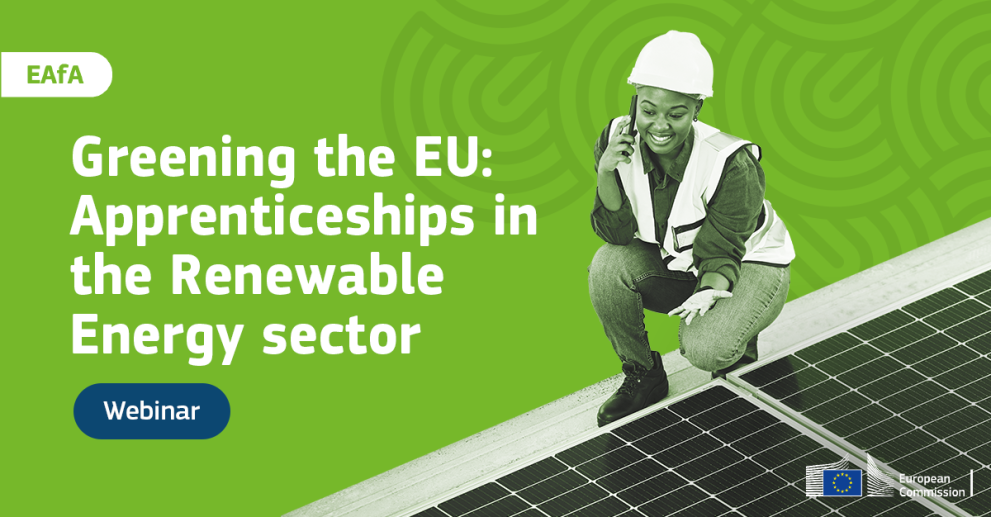
The EU’s green energy goals
The EU is aiming to ensure that 42.5% of its energy is derived from renewable energy sources by 2030 and that net-zero greenhouse gas emissions is achieved by 2050. To meet these targets, the European Commission has put forward several policy initiatives such as the Green Deal Industrial Plan, the Net-Zero Industry Academies and the REPowerEU Programme. In addition, the Policy Guidelines for the next European Commission (2024 – 2029) seek to fast-track the roll-out of renewable energy, improve energy efficiency, and develop a skilled workforce to support the transition.
Preparing the renewable energy sector for the future
Building on this context, the webinar began by underlining the critical role of the renewable energy sector and addressed the key challenges it faces. These include equipping workers with the skills needed to manage renewable energy technologies, and attracting people to jobs within the sector. Quality apprenticeships were highlighted as a promising solution, offering hands-on training for using green technologies while offering a variety of possibilities for young people and adults and for shaping mindsets and behaviours that align with the transition to a green economy.
After the introduction by the Commission, the first speaker from Cedefop pointed out that green skills became more common in job advertisements across Europe in the recent years.
Green examples from across Europe
During the event, inspiring projects were presented to demonstrate how apprenticeships can equip the renewable energy workforce with the skills needed for the green transition. They included:
- the H2CoVE project, a Centres of Vocational Excellence project, a European-wide initiative co-founded by Erasmus+ aiming to establish a skilled workforce for the emerging hydrogen economy;
- the Wind Turbine Maintenance Technician (WTMT) Apprenticeship Programme developed by the Kerry Education and Training Board in Kerry County, Ireland;
- OHKW Klimajobs, retraining individuals transitioning to green careers, Germany.
Trade unions also provided insights into the main challenges faced by the renewable energy sector, including unequal access to training, lack of interest in careers in the sector, and a shortage of skilled workers. Proposed solutions included mapping essential skills, aligning training programmes with industry demands, and visiting schools to raise awareness of career opportunities in the sector, making green jobs more attractive to students.
Key takeaways for the renewable energy sector
Apprenticeships hold significant potential in bridging the skills gap and helping the EU meet its climate targets. However, for apprenticeships to help achieve these objectives and drive the green transition forward, participants agreed that there is a need for stronger collaboration between industry and educational providers, as well as strategies to further improve the attractiveness of apprenticeships in the sector.
Watch the recording of the webinar.
You can download the event report below.
Details
- Publication date
- 29 November 2024
- Author
- Directorate-General for Employment, Social Affairs and Inclusion
